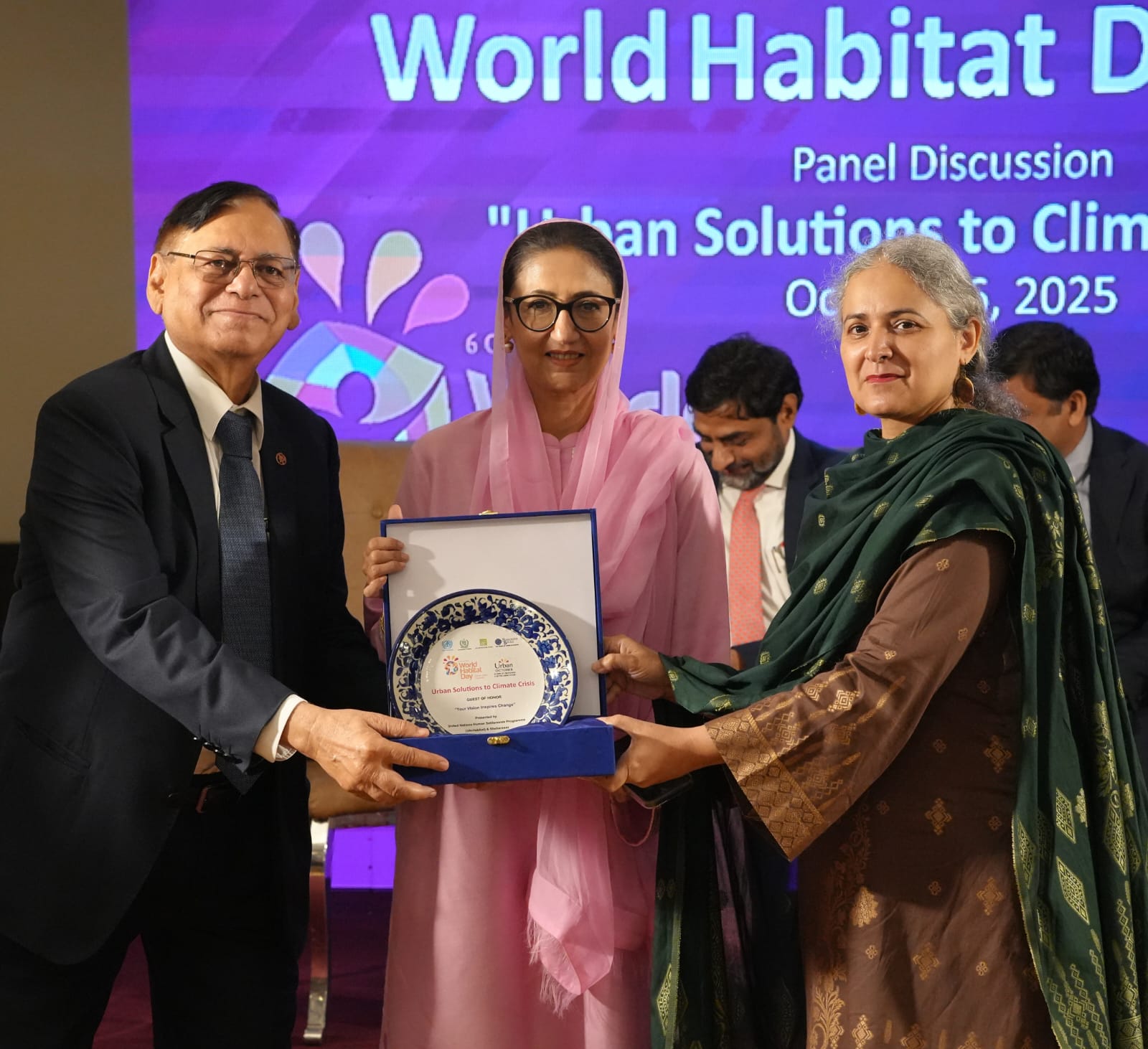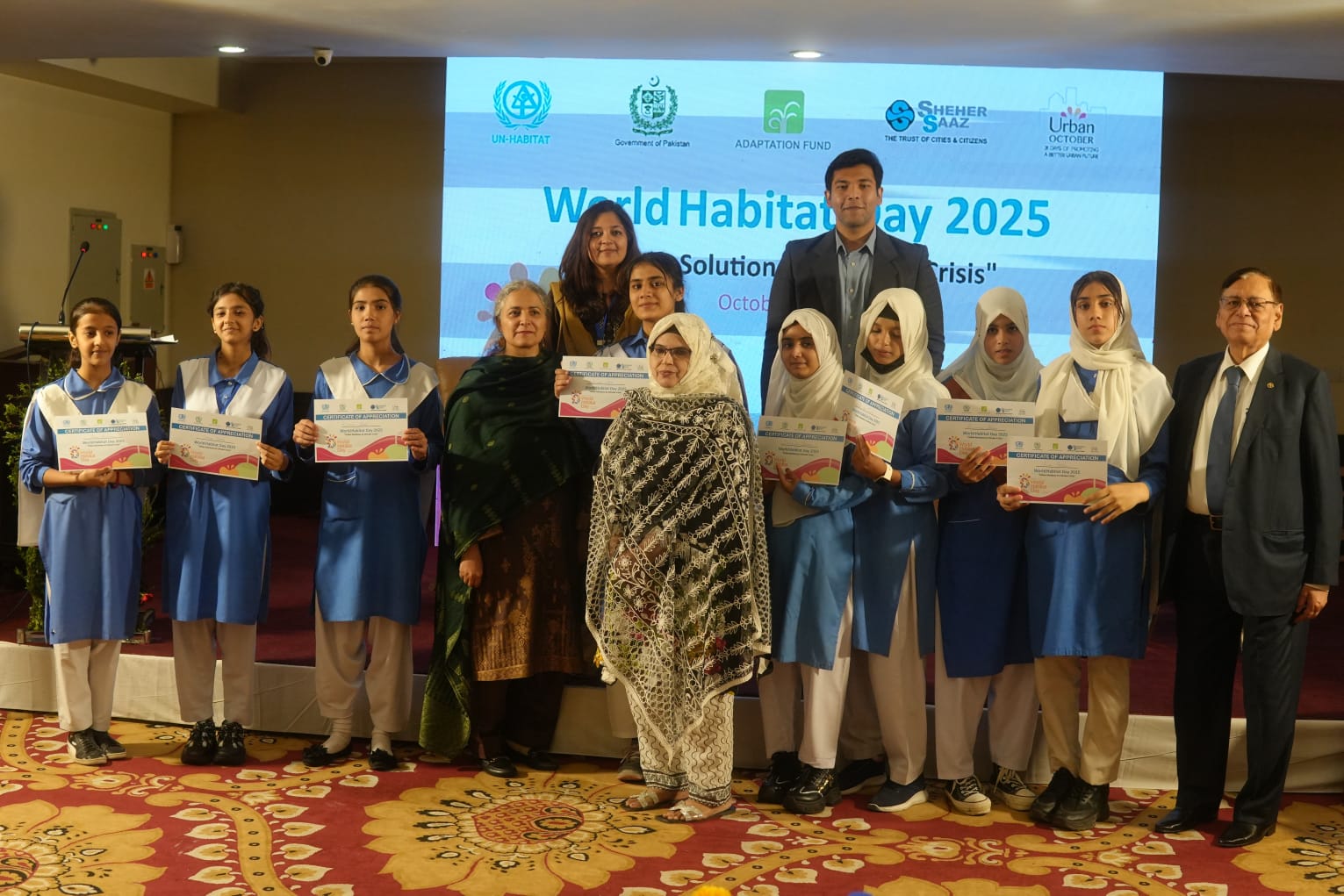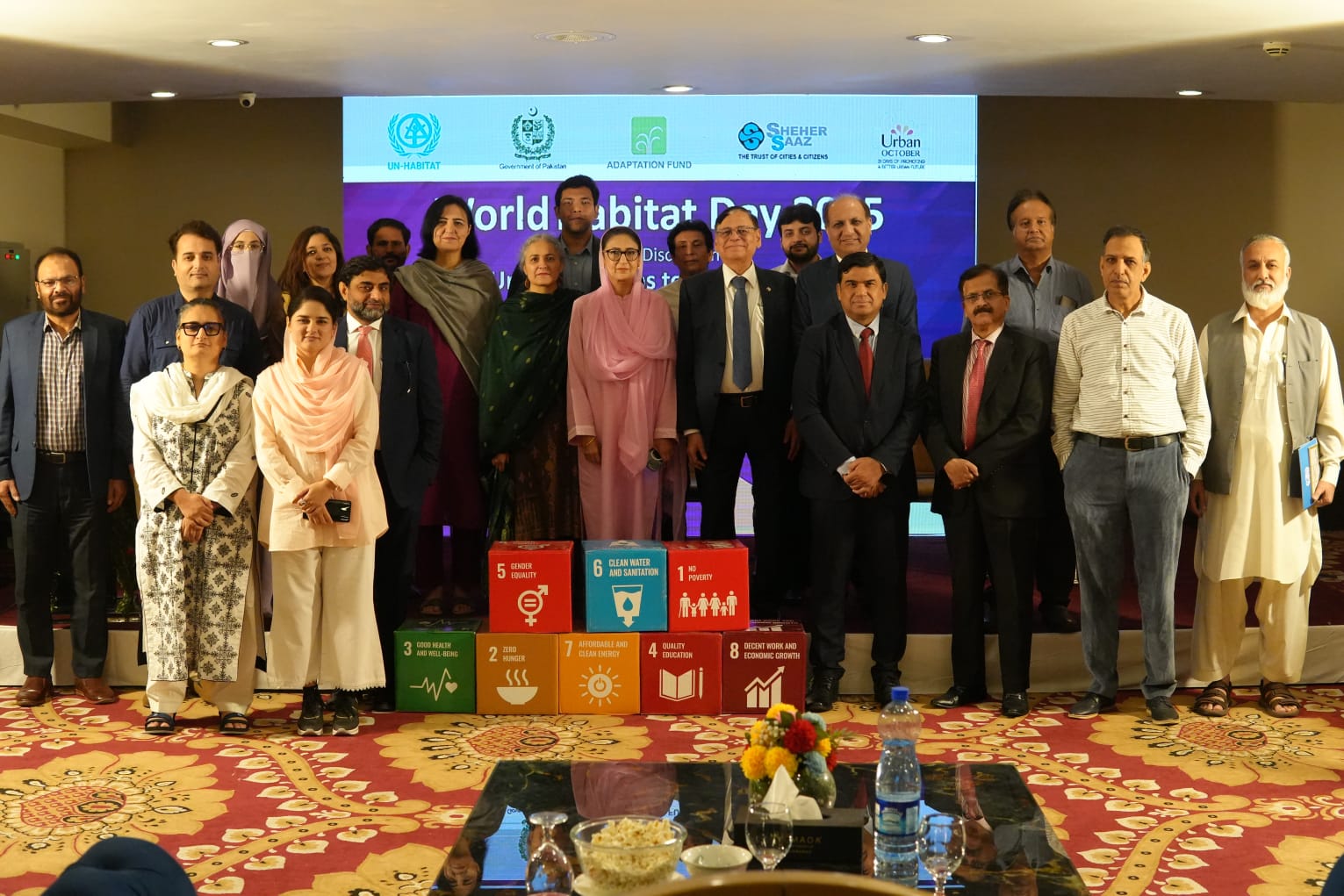
Islamabad, October 6, 2025 — Shehersaaz, in collaboration with UN-Habitat and the Adaptation Fund, celebrated World Habitat Day with an engaging and community-centered event at Ramada Hotel, Islamabad. Centered on the global theme “Urban Solutions to the Climate Crisis,” the event gathered government officials, urban planners, development professionals, youth, and sustainability advocates to explore ways cities can lead climate action.
Opening Session: Setting the Tone for Action
The event began with registration and networking, followed by the inaugural session.
Mr. Jawed Ali Khan, Senior Advisor HMP, UN-Habitat, opened the proceedings, emphasizing how Pakistan’s recent climate disasters highlight the vulnerability of urban populations and the need for modern planning and resilience measures.
Ms. Almas Shakoor, Chief Executive Director of Shehersaaz, discussed the country’s growing urban climate challenges, citing rapid urbanization and inadequate planning. She highlighted initiatives such as the Banyan Tree Park project under Urban October, calling for participatory governance, affordable housing, and stronger climate resilience.
Video messages from the UN Secretary-General and the Executive Director of UN-Habitat reinforced the global urgency of sustainable urbanization.
Representing NDMA, Mr. Idrees Mehsud, Member DRR, described Pakistan’s national strategy for managing urban climate risks, from disaster preparedness and civic awareness to tsunami risk mitigation in Gwadar.
Mr. Khalid Hafeez, Member Planning CDA, outlined CDA’s climate initiatives — constructing 100 recharge wells, expanding electric vehicle charging stations, and combating smog — with the vision of making Islamabad a modern, green, and resilient city.
From the Aga Khan Agency for Habitat, Ms. Nusrat Masab underscored the importance of empowering women, youth, and low-income communities in building livable and safe cities. She shared her organization’s experiences in disaster preparedness and community-led urban solutions.
Celebrating Youth Voices and Creativity
After the inaugural addresses, the organizers presented shields to speakers and recognized winners of a children’s drawing competition on sustainable cities. The artwork — a vibrant reflection of young imaginations — adorned the event hall. Certificates were distributed to all participants for their creativity and contribution.
Theatre for Change: “Our City, Our Future”
A youth theatre performance titled “Our City, Our Future” followed the tea break. Presented by students from Government Girls High School New Katarian, Rawalpindi, the play creatively addressed issues such as water conservation, tree planting, and waste management. Guided by Mr. Ahad Ali Siddiqui from Shehersaaz, the students used theatre as a medium to express their hopes for a greener, cleaner future. Certificates were also awarded to the young performers.

Panel Discussion: Finding Urban Solutions to the Climate Crisis
The centerpiece of the event was a high-level panel discussion featuring experts from UN-Habitat, Shehersaaz, NDMA, CDA, and the Aga Khan Agency for Habitat. The discussion revolved around actionable solutions for sustainable urbanization and community engagement.
Key takeaways included:
- Protecting agricultural land and curbing city expansion into farmland and fragile ecosystems.
- Managing cities like living systems — where balance and coordination are essential.
- Promoting nature-based solutions alongside social awareness through art and theatre.
- Enhancing data collection and inter-institutional coordination for effective disaster management.
- Addressing construction over riverbeds and flood-prone zones that amplify disaster risks.
- Encouraging citizen participation and stronger collaboration among institutions.
A lively Q&A session allowed participants to engage directly with experts, raising questions about urban governance, youth inclusion, and practical steps for climate resilience.
Closing Reflections: Building Climate-Resilient Cities
In her closing remarks, Dr. Shezra Mansab Ali Khan Kharal, Minister of State, Ministry of Climate Change and Environmental Coordination, stressed the urgency of responding to changing weather patterns and urban displacement caused by floods. She called for comprehensive urban planning to counter illegal encroachments and promote sustainable growth.
Referring to the New Urban Agenda, she reaffirmed the government’s commitment to supporting projects that promote climate resilience and sustainable urban management. She emphasized that creating livable, climate-smart cities requires collective effort — from government institutions to communities and individuals alike.
A Platform for Awareness and Action
World Habitat Day serves as a reminder of the shared responsibility to build sustainable, inclusive cities and ensure adequate shelter for all. The Islamabad event not only reflected on these global goals but also showcased Pakistan’s growing momentum toward urban innovation and resilience.
By bringing together voices from government, development, and youth, Shehersaaz and UN-Habitat turned this year’s commemoration into a platform for awareness, creativity, and collaboration — inspiring collective action toward greener, more inclusive, and climate-resilient cities.




